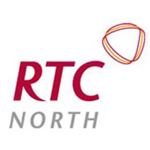Arnold is currently the Deputy Director on the new Environmental Sustainability KTN, responsible for the Chester centre and staff, delivering a wide programme through an intelligent, interactive e-portal.
He has worked overseas on world scale mining plants and with UK Manufacturing sites and is consequently familiar with mining and metal extraction, hazardous chemical manufacture and waste treatment processes. His current expertise is in sustainable materials recovery, renewable energy and Eco Innovation.
Arnold is an accomplished networker, speaker, facilitator and presenter with many conference performances to his credit including the OECD and ETAP in Europe. He has presented evidence in person to the House of Lords Select committees and the European Parliament on waste and resource issues and various technical presentations to smaller groups of MP’s and Industry leaders.
In his spare time Arnold is a keen environmentalist with a totally organic garden, including chickens, and grey water harvesting and solar thermal heating on his home. He is also very involved in his local Church and has been to Africa recently with an international charity they support to offer project manager/funding advice for training/resource centre they are trying to build in Kenya, Tanzania and Uganda.
Summary
This telephone interview involved an open discussion on Wild Cards and their associated Weak Signals as well as considering future priorities for research and development in Europe. Particular emphasis is given to environment issues and resource efficiency.
Can you envisage any major wild cards (positive or negative that may occur in the next 20 years?
AB: Undoubtedly the phosphate industry has a major impact on the environment at the point of production, but there seems to be a general failure to recognise the impact of phosphate recovery on agriculture. Consider the increase in global population leading to an increase in the competition for food which in turn means an increase in agricultural production. This tends to mean that more fertilizers will be used and ultimately the increase in the use of phosphates, as this in essential ingredient in fertilizers. At the beginning of the cycle (the increase in population leading to an increase in agricultural production) the limited resources of the phosphates are not taken into account, as the world’s phosphate rock reserves are becoming depleted. Even if this is taken into account, in order to alleviate this, agricultural industries may need to intensively irrigate which could lead to further problems such as contaminated land.
The effect of climate change on the natural environment and habitat also has the potential to be dramatic. If the migration of mackerel to the North Sea continues at an alarming rate, then a new fishing war is at risk.
What would be the dramatic impact of the wild cards you mentioned, and how should it be addressed by future research? In which field?
AB: Regarding the limited resources of phosphates, this would potentially lead to a similar situation to that with the scarcity of all rare materials. There could be geopolitical problems due to material activity of selling phosphates and problems with locations if trying to source them from other places. There is also the risk of mass displacement of population (bringing with it its own health risks) if trying to relocate and economic migration becomes a real possibility.
What are the weak signals that (if detected) could hint at a growing likelihood (or imminent realisation) of the wild cards mentioned?
AB: Blockades have been made at Peterhead port in Aberdeenshire, physically preventing the Faroese vessel Jupiter from offloading 1,100 tonnes of the fish to a processing plant in protest at the quotas for mackerel fishing.
Recent news stories have shown that the heat wave in Russia has affected cereal crops.
What are the most pressing emerging issues/problems in the EU that are insufficiently (or not at all) addressed by current research?
AB: There is a definite possibility of raw materials running out, and we need to look at ways at recovering resources. One area for research is around intelligent active disassembly so materials can easily and readily be recycled and reused.
It would also be desirable to look at new alternatives to existing materials which may exhibit the same (or preferred properties). For example, even when we consider new innovative solutions such as photovoltaics, there is not always full acknowledgement of where the raw materials will actually come from as silicon is a rare earth material. What would be of interest would be if there were alternatives that could act as a catalyst – for example, nano copper used instead of platinum.
Are there any other WI-WEs, areas of interest or lessons learned from other studies?
AB: Actually, perhaps another Wild Card would be a major landslip on the North Atlantic Coast of Canada which could result in a large tsunami that would impact on the Western Coast of Europe. Lots of money has been invested in avalanche research, and this could be utilised in the landslip example whereby multiple smaller tsunamis are triggered to avoid the catastrophic impact of one large one.
What in your opinion are the best methods to identify WI-WEs?
AB: One way of identifying Wild Cards and Weak Signals would be to have two classic teams of experts – on utopian and one dystopian. It would be interesting to encourage each team of experts to think of events and issues in the other genre, and then analyse the results.
